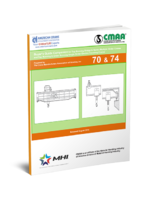Hella Adds to Auto Fuel Efficiency with Wastegate Actuator
PLYMOUTH, Mich. --Hella, a global supplier of electronics and lighting, is adding a new electric wastegate actuator to its portfolio of fuel-efficiency products.
Designed especially for direct-injection gasoline engines, the new actuator provides more precise control of the engine's turbo-charger for better overall performance and fuel economy.
"Wastegate actuators, while not new, are now of greater interest to all auto manufacturers," explained Dr. Martin Fischer, president of Hella Electronics Corporation and the head of the company's Corporate Center USA in Plymouth Township, Michigan. "They divert exhaust gases away from the turbine wheel in a turbocharged engine system, when power demand is lower."
Hella began making engine-compartment actuators in 1999 with an electric actuator, with integrated electronics, for variable nozzle turbo-chargers in diesel engines. The company has gone on to apply its actuator technologies to gasoline engines. Hella's actuators now control turbo-chargers as well as intake manifolds.
The use of turbo-chargers is another technology that European and domestic U.S. automakers are introducing in North America to make smaller engines more responsive, while at the same time improving fuel efficiency.
"The driver is better able to control the speed of a turbo-charged engine with an electric wastegate actuator," he said. "It's the product of the future, especially for super-mini and compact cars, also called B- and C-segment vehicles."
Hella is predicting that smaller, turbo-charged engines with electric wastegate actuators will be in common use on American cars within three-to-five years. Now in development, Hella's new actuators are expected to be in use on U.S. cars before the 2015 model year.
Fischer believes electric actuators have a clear advantage over today's pneumatic wastegate actuators.
"Electric actuators provide higher control dynamics and better accuracy and resolution in controlling the position of the wastegate, since they are independent of unstable vacuum conditions found in gasoline engines," he said. "The improved performance allows more precise control of the turbo charger in critical areas of operation - a major pre-requisite for increasing the lifetime of the charger.
"Electric actuators also shorten the so-called 'turbo lag' and produces less 'turbo flutter,' a sound heard when lifting off the throttle in a turbo-charged car. Some have described this noise as the sound of a chipmunk or a rattlesnake."
About Hella
Hella KGaA Hueck & Co. develops and manufactures lighting and electronics components and systems for the automotive industry. Its joint venture companies also produce complete vehicle modules, air-conditioning systems and vehicle electric systems. In addition, Hella has one of the largest automotive aftermarket organizations in the world, with its own sales companies and partners in more than 100 countries.
Hella Group sales were $4.69 billion in fiscal year 2009-2010. Hella is one of the top 50 automotive parts suppliers in the world and one of the 100 largest industrial companies in Germany. Nearly 23,000 people work at 70 locations in more than 30 countries, including more than 3,500 research-and-development engineers and technicians. Additional information is available at www.hella.com.
SOURCE Hella
CONTACT:
Company Contact:
Markus Richter,
Hella KGaA Hueck & Company,
+49.29.41.38.7545,
markus.richter@hella.com;
Media Contacts:
Marty Habalewsky,
mhabalewsky@usautocom.com,
or
Larry Weis,
lweis@usautocom.com,
both of AutoCom Associates,
+1-248-647-8621
Web Site: www.hella.com




